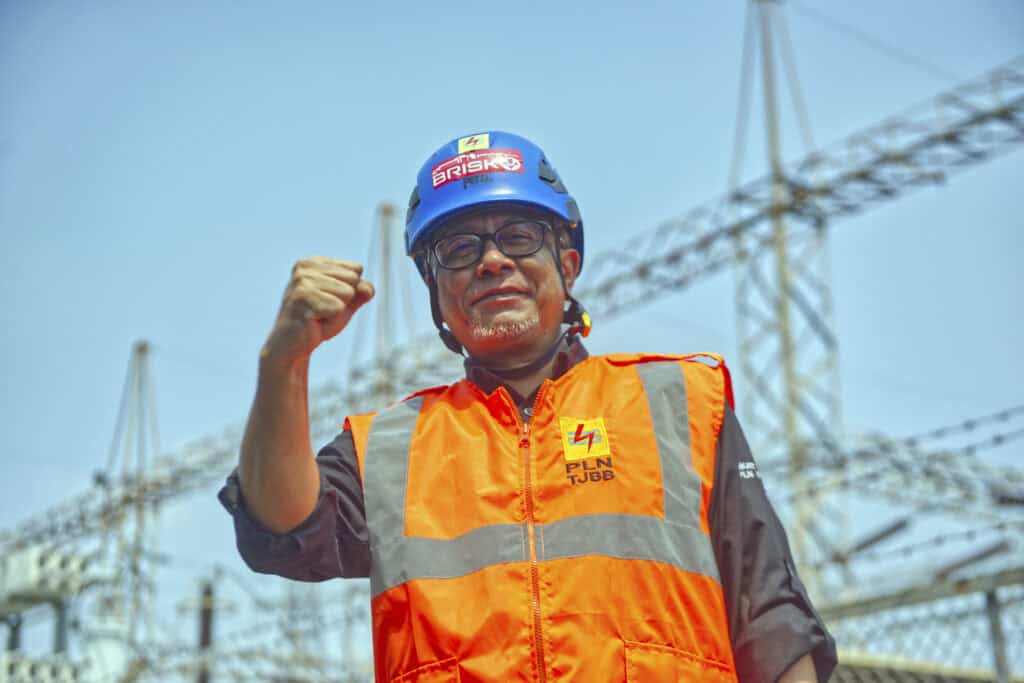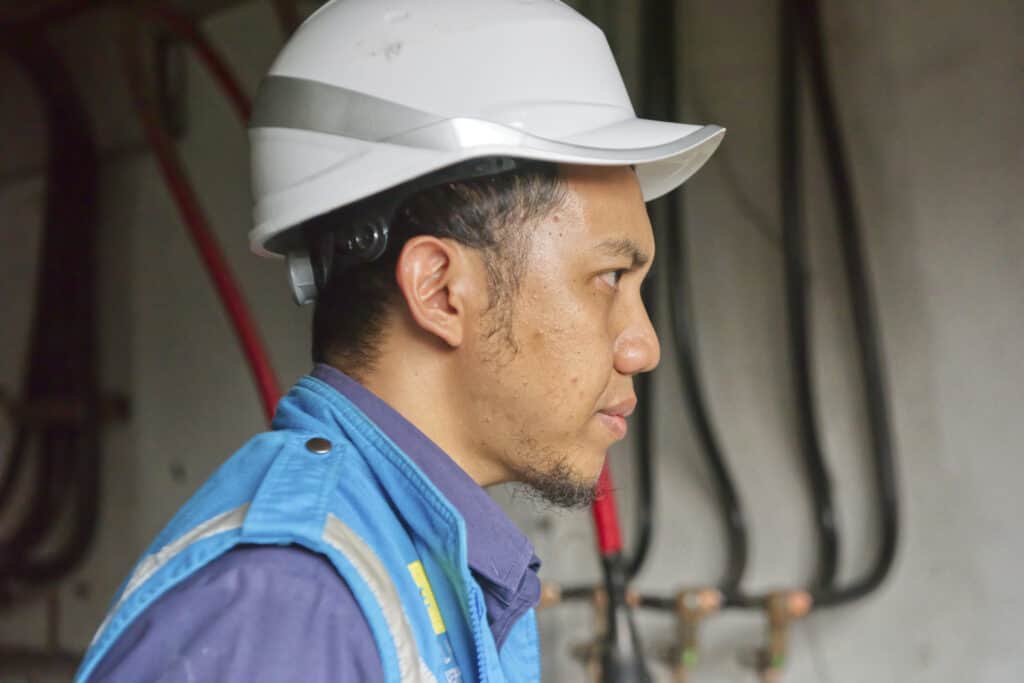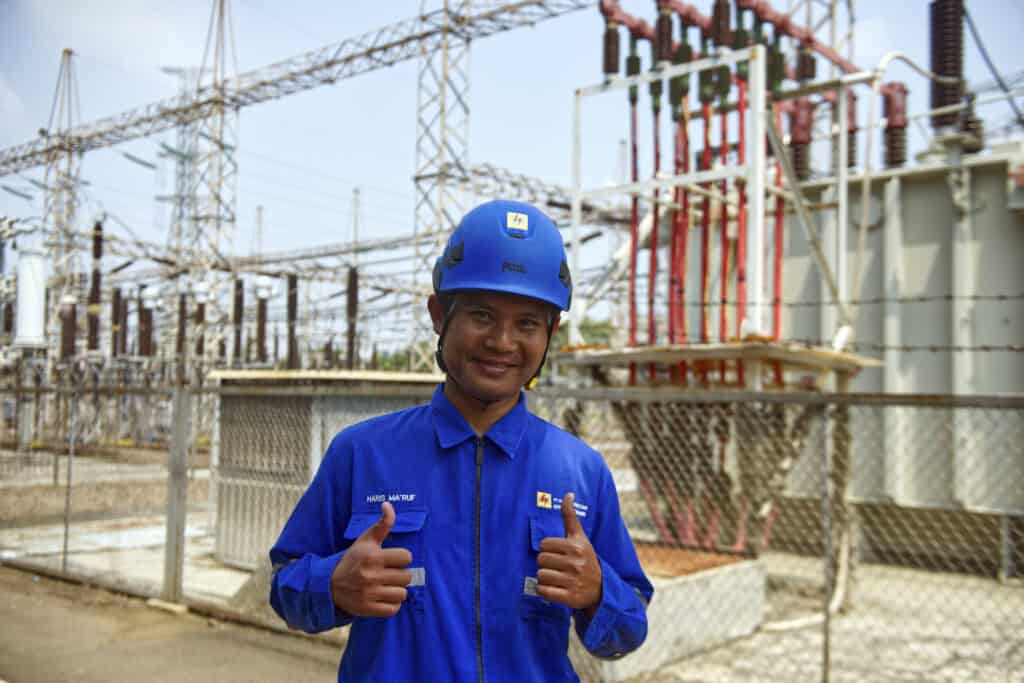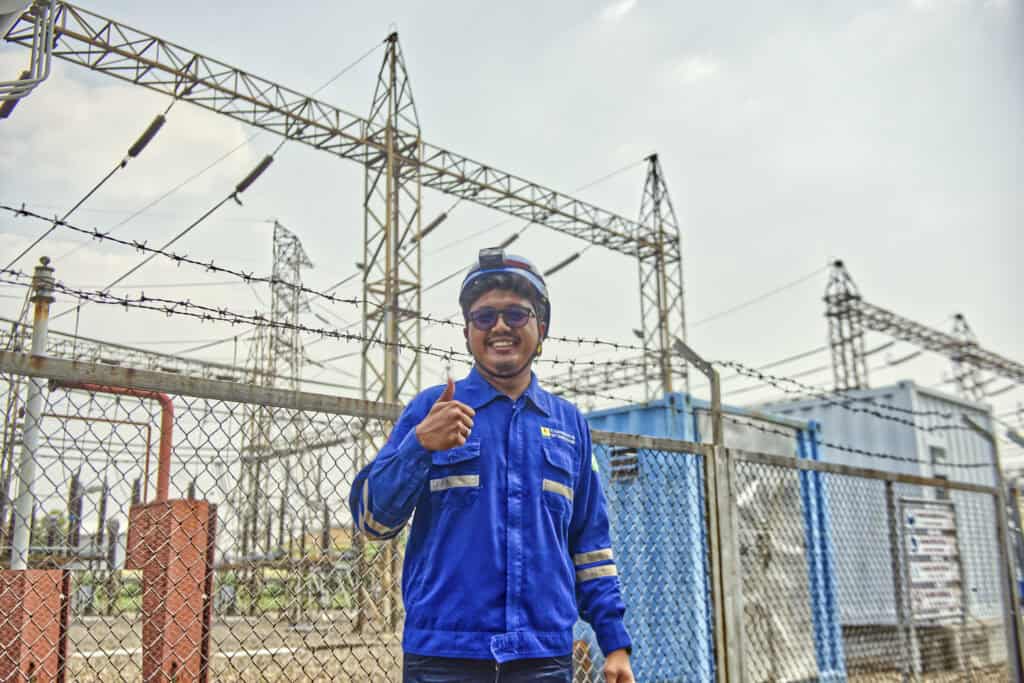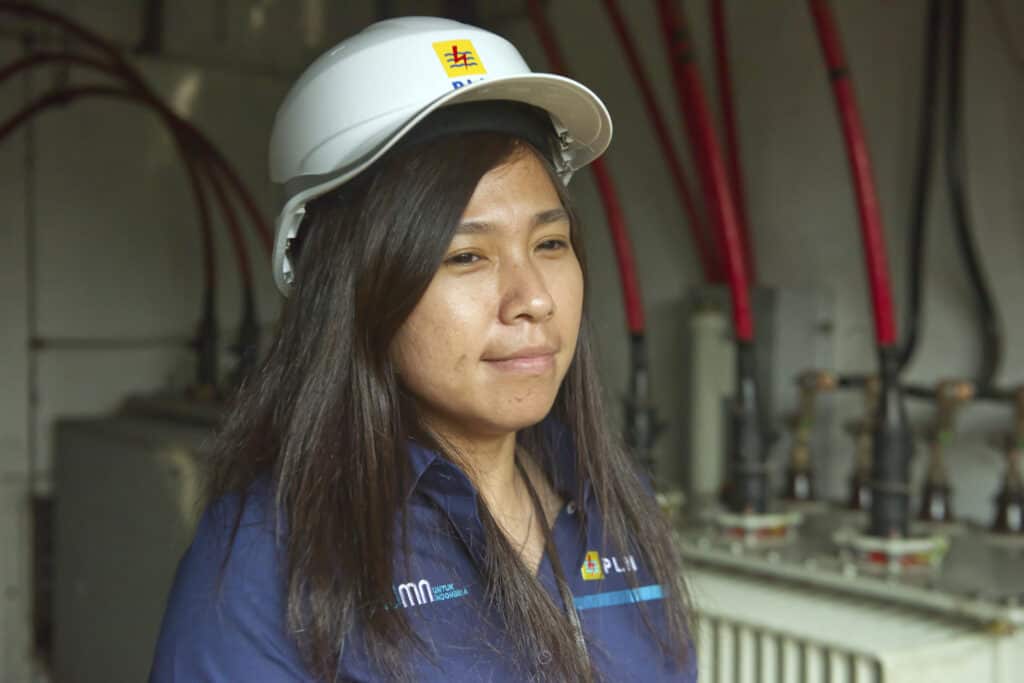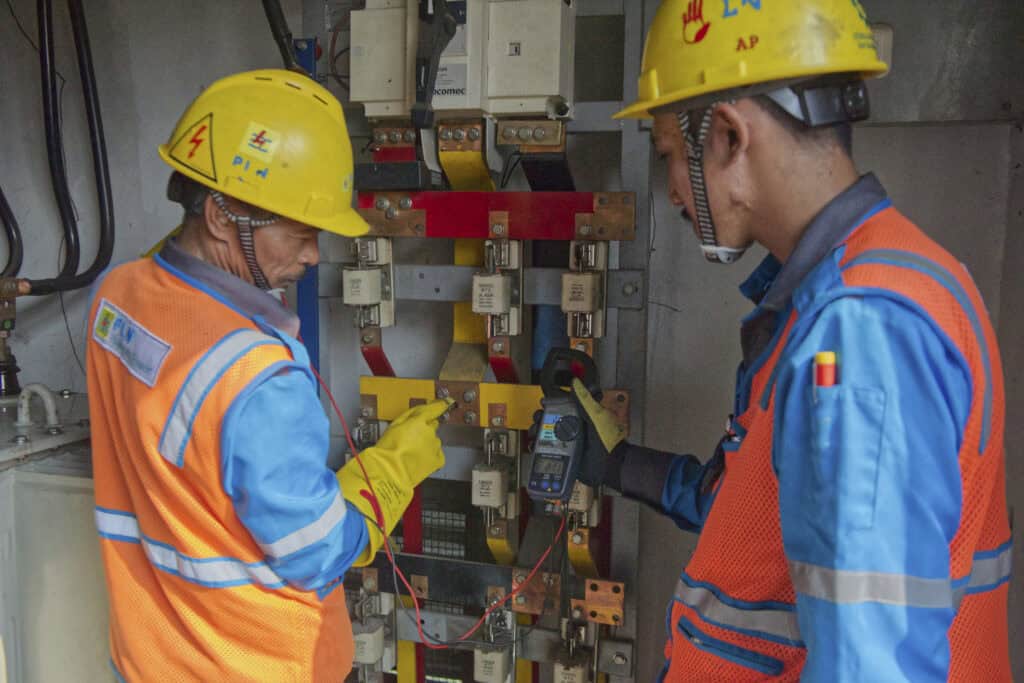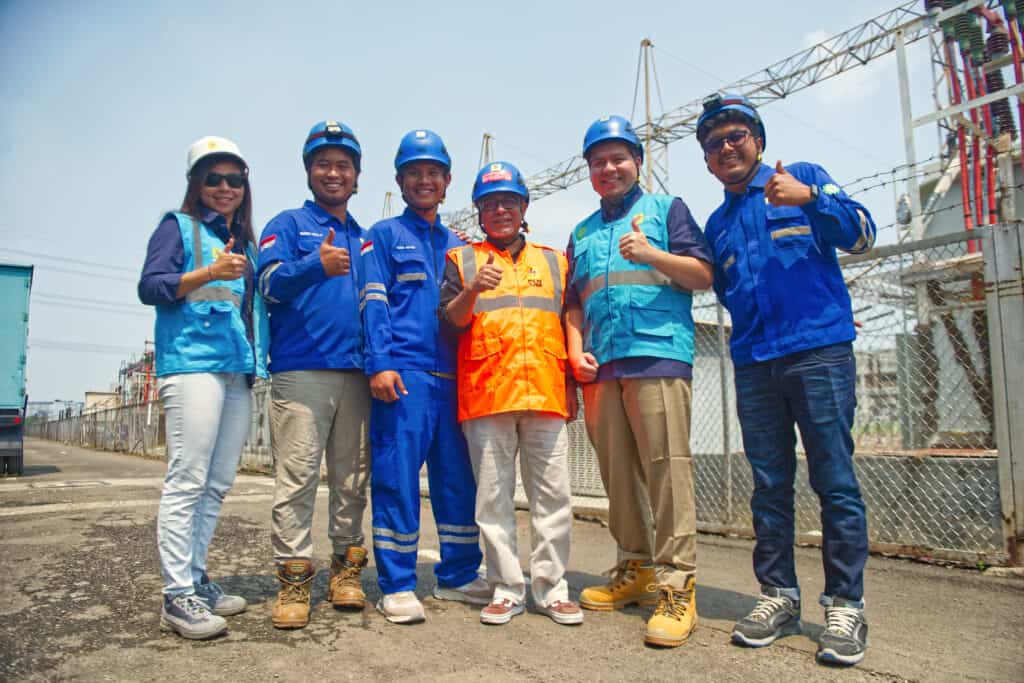
At the union rooms in Duri Kosambi, on the outskirts of Jakarta, Indonesia, the unionised electrical engineers who maintain the State’s power grid transmission and distribution systems are proud of their service to the country.
Bayu Eko Prasetyo, the Regional Chairman of the State Electricity Company Workers Union (SP PLN Persero) at Duri Kosambi Substation Transmission Unit, describes the grid as the heart of the nation, pumping electricity and powering the people.
“If the grid is healthy, the nation is healthy,” he said.
All is not well, however, with growing union concerns that the state-owned company PLN Persero could be privatised.
“We must maintain state control over strategic assets,” said Budi Setianto, the General Treasurer of the 35,000-strong union. “PLN’s electricity assets—from generation to distribution and sales—must all be controlled and managed by PLN for the benefit of the wider community.”
Indonesia’s Just Energy Transition Partnership (JETP), a USD 20B agreement involving public and private financing to support a just energy transition in the country, has only earmarked $US 0.4B of its $11.5B in public funding for converting and expanding the grid to carry clean energy.
PLN Persero estimates it will need to build a nearly 50,000-kilometre, $36.8 billion grid expansion to meet new demand.
“There can be no transition without transmission,” the government said in August, calling for more investment.
Fajli Mustafa, Manager of the Substation Transmission Unit at Duri Kosambi, said that officials from the Asian Development Bank have met with PLN management and offered a loan to help upgrade the grid to meet renewable energy demands. Management is currently considering the feasibility of the loan terms.
The union, however, suspects there are strings attached.
“We are aware that the threat to the sovereignty of electrical energy is great, not only from within but from abroad,” said Budi Setianto.
“We are calling for support from all people who are part of the struggle to give us the strength to achieve this. We must keep up the fighting spirit,” he said, raising his fist in the air.
In a letter to outgoing Indonesian President Joko Widodo, the global union Public Services International (PSI) General Secretary reminded the president of the importance of the Indonesian Constitution. The letter warned that privatisation would cripple universal access to the grid, hinder the transition to low-carbon electricity generation, raise prices, and increase demand for government subsidies. Private entities would find excuses not to provide services to the poor or people in remote areas. They would take profits out of Indonesia and create greater foreign influence over the government.
The letter cited a recent report from the International Energy Agency predicting that private energy companies would also resist the transition to renewable energy as their profit streams depend on cheap Indonesian fossil fuels.
“It’s pretty scandalous,” said Kate Lappin, Regional Secretary Asia Pacific, PSI. “Privatisation is being disguised as a Just Transition. But we don’t see anything just about it, and we don’t see much transition. What we do see are dubious investments, corruption, and persistent government efforts to privatise everything.”
PSI has also exposed how the Ministry for State-Owned Enterprises is forming a holding company for geothermal and coal-fired power plants. They are separating geothermal from PLN to be sold through a public offering.
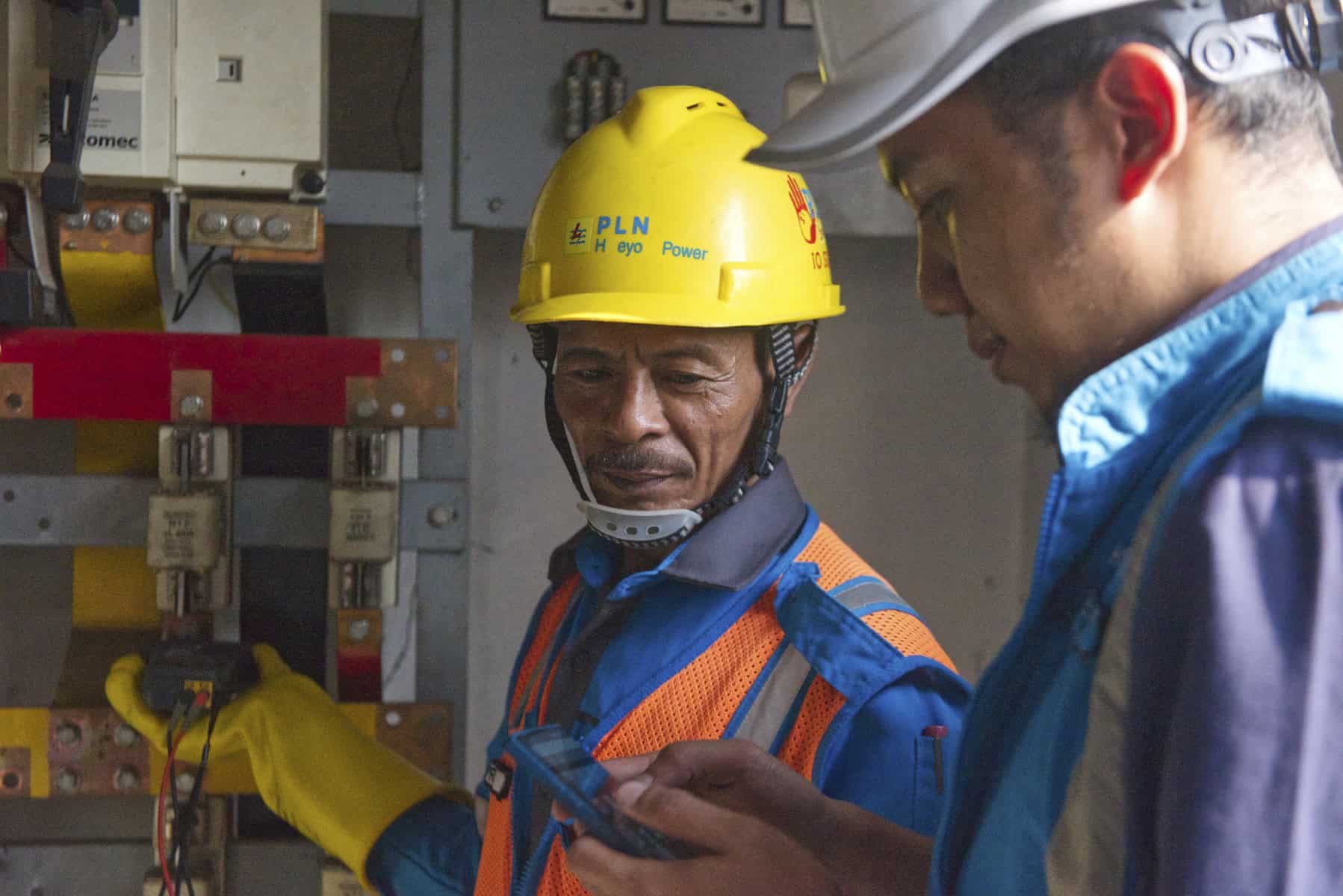
With the support of Union Aid Abroad-APHEDA and PSI, Indonesian unionists have been holding workshops in Jakarta and the regions with Dr Colin Long, Just Transitions Officer at Victoria Trades Hall Council in Melbourne. Indonesian unions are developing strategic actions to retain state ownership of PLN, power, distribution, and transmission.
At the Jakarta workshops in July, unions covering the electricity and power sector adopted a Public Path of Energy Transition agenda. The aims are to ensure PLN remains the main public institution responsible for providing electricity, to increase renewable energy using a direct purchase model, and to provide workers at coal-fired power plants with a just transition based on public goods, skills, and technology transfer.
Article and photos by Zoe Reynolds.
